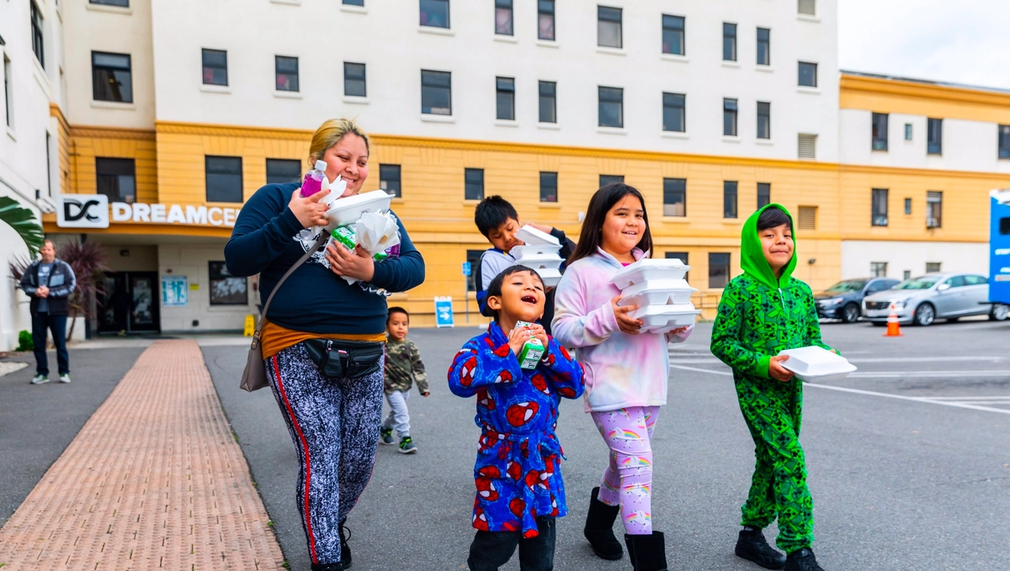Dream Center Transitional Housing Programs
Located in Echo Park, The Dream Center is a faith-based human service and outreach organization with a long history of aiding and transitioning individuals and families experiencing homelessness into stable housing arrangements through a variety of programs and services. Funding would be utilized to operate and strengthen our existing programs which extend beyond transitional housing. These include programs to help individuals navigate and overcome the impacts of addiction, abuse, human trafficking, and lack of access to education.

What is the primary issue area that your application will impact?
Housing and Homelessness
In which areas of Los Angeles will you be directly working?
City of Los Angeles
In what stage of innovation is this project, program, or initiative?
Expand existing project, program, or initiative
What is your understanding of the issue that you are seeking to address?
We understand that being "homeless" isn't who an individual or family is - it's simply a current circumstance. With this in mind, the Dream Center's whole-person approach enables us to go beyond the immediate need for physical shelter. We also understand that people experience homelessness for many different reasons. They include, in part, poverty, lack of affordable housing, employment discrimination, substance abuse or mental health challenges, domestic violence, and kids who age out of foster care. There are currently at least 63,706 people experiencing homelessness in Los Angeles County, according to a count by LAHSA in 2020 — a 13% increase from 2019. Although the 2022 count was postponed due to COVID, we anticipate a much higher increase from previous years. Our programs are broad and deep to address the issues that lead to homelessness. Our experience and deep roots within the community continue to provide critical programs to those who need it the most.
Describe the project, program, or initiative this grant will support to address the issue.
Individuals and families in Dream Center transitional housing programs are provided with practical needs - housing and food - and with substantive, intangible needs that affect life changes. These impactful programs additionally enable work therapy opportunities for clients immersed into the transitional housing programs as they contribute as essential workers in kitchen staff roles, as warehouse personnel, and as outreach facilitators. There are six free transitional housing programs, with 543 spaces available for clients who seek to rebuild their lives from life challenges of homelessness, substance abuse, domestic violence, and street or gang life. Such opportunities are crucial to the development and process of recovery and restoration. For many homeless people or facing deeply rooted issues like substance abuse, it takes consistency and tenacity to build the desire for positive change. Often, Dream Center residents with these types of challenges have built defense mechanisms as a response to dealing with past traumas and are more likely to be open to people they have become familiar with. From experience over the years, the Dream Center has recognized that outreach is necessary to encourage, coach, and mentor individuals to inspire life change.
Describe how Los Angeles County will be different if your work is successful.
Whether food donations are being distributed into the community through outreach by clients in our transitional housing programs, or prospective clients are recruited from the communities served by outreach, all Dream Center programs are designed to make the greatest impact while being efficient and effective. The Dream Centers' service delivery footprint stretches nineteen miles North of the Dream Center location in Echo Park to the San Fernando Valley (Van Nuys/North Hollywood), 13.5 miles South into Watts, and 3.7 miles East in downtown LA Skid Row. Please see the Google Map below of the 360,000 people that we can reach, which is nine percent of the population in the city of Los Angeles.
What evidence do you have that this project, program, or initiative is or will be successful, and how will you define and measure success?
Surveys, structured feedback, and record keeping will allow the Dream Center to measure success in the following manner - Sustained secession from alcohol, illicit substances, and tobacco of all program residents. Goal: 97% Monthly progress toward personal goals and savings accumulation among all program residents. Goal 90% 20% increase in the number of individuals served through programs addressing food insecurity and poverty alleviation. 10% increase in the number of residents housed among all programs.
Approximately how many people will be impacted by this project, program, or initiative?
Direct Impact: 12
Indirect Impact: 700